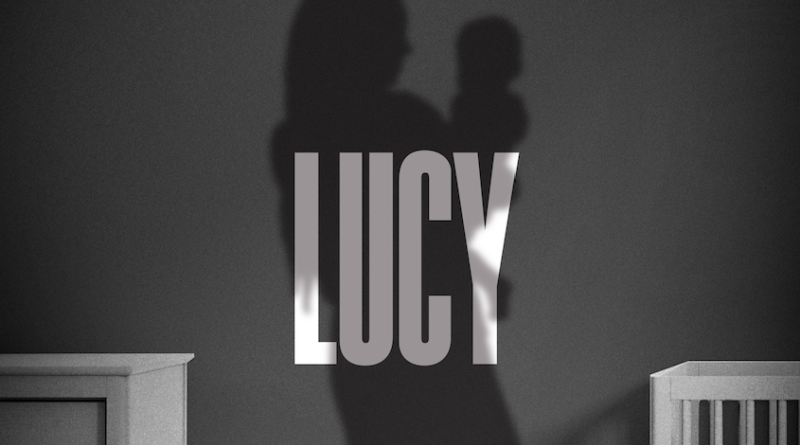INTERVIEW: Erica Schmidt examines parenting in new play ‘Lucy’
Image courtesy of BBB / Provided with permission.
Erica Schmidt, a BAFTA nominee for last year’s Cyrano, has a new play premiering as part of the Audible Theater series at the Minetta Lane Theatre in the West Village of Manhattan. Lucy, which opens Monday, Feb. 6, features Brooke Bloom as Mary, a mother of young children, who hires Ashling (Lynn Collins) as a nanny. The questions and doubts begin to swirl when Mary loses trust in Ashling and wonders whether the nanny is an unwelcome visitor in the house. What transpires is equal parts humorous and thrilling, with the adults in the room likely learning more lessons than the children.
“I’m a mother, and I have a lot questions and ideas about the subject,” said Schmidt, who also directs the play. “And I was really interested in creating a play that was funny and that was a thriller. You don’t really see the thriller genre on stage. I think the relationship between an employer and an employee in a domestic space is so tricky and nuanced and interesting, and then these questions that I was interested in engaging with about motherhood felt like they naturally fit with a nanny and a mother relationship.”
As Schmidt put pen to paper, she started to create a narrative that centered around the worth “truth.” Everyone has their own version of the truth, and also everyone shares little lies with loved ones — and with themselves. The playwright wanted to explore what happens when those little lies start to build and build and build, eventually becoming one big lie.
“[As an example, you’re] looking at an Instagram post, and you’re feeling blue or everything is not going very well, and then you take this amazing selfie of yourself in the best possible light,” Schmidt said. “Suddenly the image you’re projecting to the world isn’t completely the truth about how you are. I’m curious about what that’s doing to all of our actual personal interactions one on one as opposed to the life we create for ourselves through social media or texting or emailing each other.”
Schmidt, who recently directed and adapted her own versions of Cyrano and MacBeth, began writing plays with the intention of directing them. She has actually been a theater director longer than being a playwright. “In many ways, the piece is conceived in order to direct,” she said. “I’m learning it’s a different way of writing as I’m trying to transition into writing for film and television, which I don’t direct. I’m learning how to change the way I’m writing so it’s less directorial, if that makes sense.”
In Lucy, Schmidt gets to examine questions about parenting that she has wondered about in her own life, and no doubt many audience members share the same thoughts. For example, what if a nanny is extremely qualified and subsequently wonderful with the children? That usually means great success, but sometimes a parent can feel conflicted about this new relationship in the child’s life.
“That’s one of the things that is really hard as a mother when talking about these questions about motherhood,” Schmidt said. “If someone else is spending more time with your children, and if someone else has a natural gift for playing and pretending and the stamina to be on their knees and play pretend for six hours at a time, that’s such a beautiful gift. And as a parent, sometimes it’s impossible to be able to do that at the same time as you’re doing other things. That is definitely one of the questions of the play. There’s this aspect of intimidation and jealousy.”
Also, in Lucy, Ashling is a career nanny who is older than Mary. This invited guest has more experience with young children, and Schmidt wonders whether parents sometimes have a fear when encountering a nanny or educator who may know more information about a particular child — information that is impossible for the parents to see or understand or accept, at least initially.
“You just don’t have that breadth of experience with so many different children, and also you love them so completely … that you’re blinded to certain aspects of their development or their character,” she said. “They are different with you than they are in the world. I think there’s this underlying terror … that when you give birth, you give birth to a worry, to a terror that is alive as long as your child is alive. It’s the phenomenon of your heart outside of your body walking around the world, but the other part of that is that there’s this fear that your child might not be what you think they are or want them to be. No matter what you do, how much you love them, who they are in the world is separate from you and uncontrollable, and the character of Mary is very much a control freak. She’s obsessed with order, and she really believes that she can control the patterns of her children, their sleeping and their eating. And she has to learn over the course of the play that that’s beyond her. Ashling knows that going in because she’s been intimately involved in multiple families.”
By John Soltes / Publisher / John@HollywoodSoapbox.com
Lucy, written and directed by Erica Schmidt, is now playing as part of the Audible Theater series at the Minetta Lane Theatre in the West Village of Manhattan. Click here for more information and tickets.

